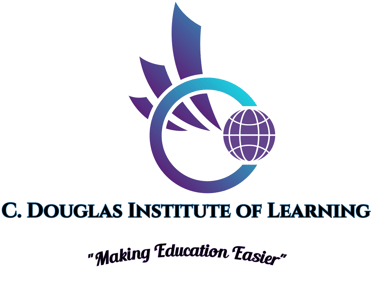
Radiology Technician
Length: 2923 clock hours/96 Instructional Weeks
Awarded: Associate Degree
Program Credit: 105
Mode of Delivery: (online & in person)
Registration: $15,000.00
Uniform: $10,000.00
Lab Fee: $9,000.00
Course Material: $26,000.00
Tuition: $1,108,000.00
Exam Fee: $52,000.00
Student Activity Fee: $40,000.00
Insurance: Contact the accounts department for more information.
DESCRIPTION
The Radiologic Technology program at C. Douglas Institute of Learning is a comprehensive, full-time, two-year limited-enrollment program. It integrates joint clinical and didactic training, providing instruction in anatomy and physiology, patient care procedures, radiation physics, radiation protection, principles of imaging, medical terminology, patient positioning, medical ethics, radiobiology, and pathology. Graduates become skilled radiologic technologists capable of producing diagnostic images under the guidance of radiologists or medical specialists.
INTRODUCTION
This program equips students with the necessary skills to perform radiographic procedures and produce diagnostic images. Radiologic technologists play a crucial role in healthcare imaging, working in various settings, including hospitals, clinics, private industry, physician offices, and mobile X-ray units.
OBJECTIVE
The Learning Objectives for a Radiology Technician Associate Degree program are designed to equip students with a comprehensive understanding of medical imaging techniques and the practical skills required for a successful career in radiography. Students will delve into the fundamentals of anatomy, physiology, and medical terminology, laying the foundation for precise image interpretation. The curriculum emphasizes hands-on training, fostering proficiency in operating radiographic equipment and applying safety protocols. Furthermore, students will develop critical thinking skills to assess and adapt imaging procedures based on patient conditions. The program aims to instill ethical and professional conduct, preparing graduates to communicate effectively with patients, collaborate with healthcare teams, and adhere to industry standards. Overall, the learning objectives emphasize a well-rounded education that combines theoretical knowledge with practical expertise, ensuring graduates are poised for success in the dynamic field of radiologic technology.
Award and Learning Pathways:
Upon successful completion of the 24-month competency-based program, graduates receive an Associate of Applied Science degree, enabling them to advance their careers in healthcare imaging. The program serves as a pathway to entry-level positions in medical radiologic technology.
EXTERNSHIP
An externship course is included in this program to provide students with the opportunity to apply their knowledge and skills to real-life situations in a healthcare setting. Students are required to complete the required externship hours and other related learning activities before graduation. Students are not paid for work performed at the externships.
Unit 1-4: Introduction to Radiologic Technology*
Weeks 1-4: Radiology Basics
- Introduction to radiologic technology
- Fundamentals of medical imaging
- Weeks 5-12: Physics and Exposure in Radiography
- Radiography in the digital age
- Understanding radiation biology
Weeks 13-20: Musculoskeletal Radiology
Unit 5-8: Imaging Techniques and Procedures
- Practical approach to orthopedic imaging
- Top differentials in musculoskeletal radiology
Weeks 21-28: Gastrointestinal and Neuroimaging
- Case reviews in gastrointestinal imaging
- Essentials of neuroimaging
Weeks 29-36: Radiologic Physics and Pathology
Unit 9-12: Diagnostic Imaging and Pathophysiology
- Review of radiologic physics
- Diagnostic imaging of brain, head, neck, and spine
Weeks 37-44: Pediatric Imaging and Chest Radiology
- Case series in pediatric radiology
- Essentials of chest radiology
Weeks 45-52: Emergency Radiology and Advanced Topics
Unit 13-16: Specialized Topics and Advanced Imaging
- Teaching file in emergency and trauma radiology
- Advanced radiologic procedures and topics
- Weeks 53-60: Digital Radiology and Structured Reporting
- Digital imaging and its applications
- Structured reporting in radiology
Unit 17-20: Sectional Anatomy and Clinical Internship
- Weeks 61-68: Sectional Anatomy
- Applied radiological anatomy for medical professionals
- Sectional anatomy for imaging specialists
- Weeks 69-76: Clinical Internship Preparation
- Review and preparation for clinical internship
- Internship site selection and orientation
Unit 21-24: Clinical Internship and Capstone Project
- Weeks 77-96: Clinical Internship
- Hands-on experience in a clinical setting
- Capstone project and final assessment
PROGRAM OUTLINE
